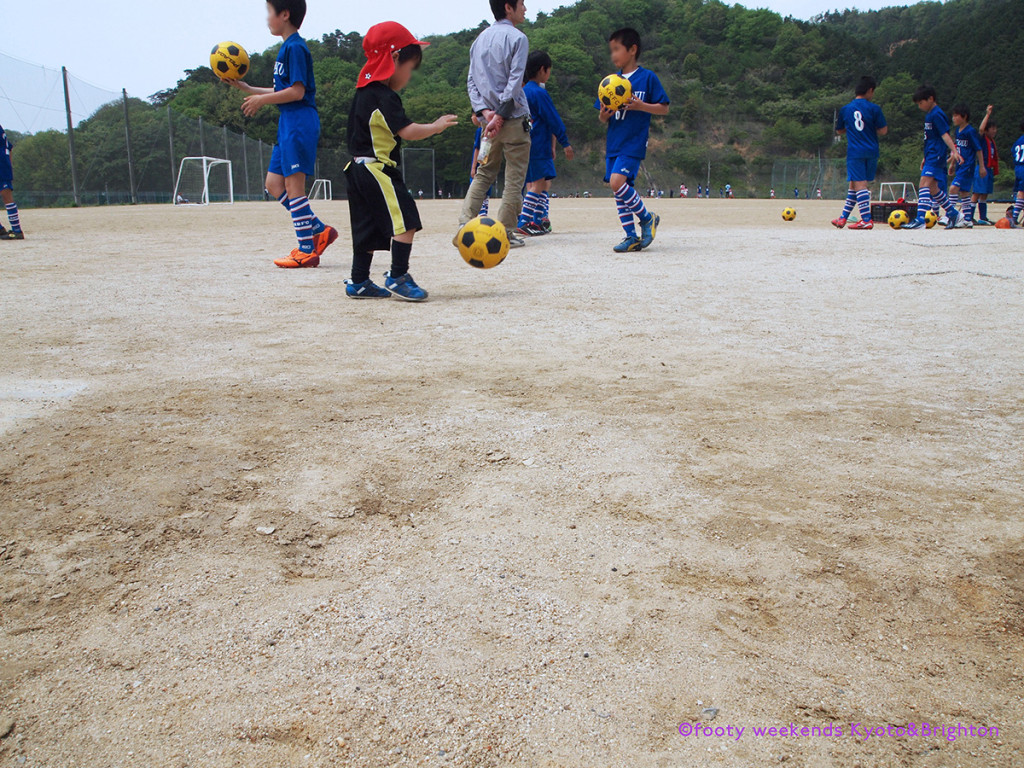Ryota Yoshikawa,Instructor for Junior football club
Be it Japanese national team players, world famous players, J League stars, or Sunday pub league players. Whatever player you're talking about, and whichever league they've made it into, they've all bound to have come from some form of youth football, whether it was the under-18s of a big club, a small community team, or just kicking the ball about in the park. The enjoyment of playing football that young, the pure joy that comes from simply kicking a ball around, is surely the ‘grassroots’ of football. Youth football is a miniature, scaled-down, simplified version of the world of football, and as someone working with the youth players of today, it is from this position that I want to share some elements of it that I have come across.
少年サッカーチーム指導者・吉川亮太
日本代表選手や世界のトッププレイヤー、Jリーガー、草サッカーのおじさん。どんなプレイヤーにも元を辿れば少年時代があります。その少年時代に楽しむサッカーは、現在そして未来のサッカー界の原点(Grass Roots)であり、縮図でもあります。
そんなGrass Rootsで活動している少年や指導者たちの視点から見える、サッカーの世界、サッカーの楽しみ方をお伝えしていきたいと思います。
私が少年サッカーの指導者として大切にしている3つの視点をご紹介します。
Not so far apart
The Japanese school education system and youth football
Currently, a key trend in Japanese education policy is working on fostering the skills for how to get by in society, namely, the ability to think critically, judge, and express oneself. By giving children basic knowledge, skills, and the ability to think for themselves, they should stand a better chance after they graduate. This policy trend emerged due to the realisation of the lack of connection between the worlds of school and society. Once upon a time, in the world of school education, a syllabus to teach the knowledge and skills that would allow a student to graduate and survive in society, did not really exist. Or rather, were not thought of as a necessary part of the curriculum one way or another.
In the world of Japanese football, there are several similarities that can be identified with Japanese education system. Whilst the quality of the passing, dribbling, and other basic skills remain to be a strong point of Japanese players, it seems once it comes to displaying these qualities in the international arena, especially against players from other countries, these skills cease to appear. The transition between the training ground and stadium, and putting these well-honed skills into practice in a game, is a problematic area. The training environments where our players are acquiring these skills then, are perhaps lacking in the ability to connect these skills with the reality of a game. That is, how to envisage using them with what may actually occur on the pitch. Players are often lacking in the ability to apply their hard-earned knowledge and high level skills on the battle field.
The road to improving the training environment relies on honing and developing high-level ability in players to acquire not only key skills, but also the ability to judge situations during a game, the ability to analyse what is actually happening around them, and respond accordingly. For the most part, the mistakes I witness during games are quite often the result of not being able to judge the situation they are facing at that moment in time, and all the effort they put in during training fails to pay off.
Whatever high-level skills a player possesses, they're never going to be able to display them for all their worth if they can't connect them with the real life of the game. They need to graduate from the training ground with the ability to think, judge and analyse. Fostering the ability to 'live' in a football game is the same as fostering children who can live in society.
◇視点1「日本の学校教育と少年サッカー指導の共通性」
現在、日本の学校教育においては「生きる力」として、自ら学び考える力、習得した基礎知識・技術をもとに、思考し、判断し、表現する力、の育成が基本方針として掲げられています。これは、かつての学校教育では、学校で身に付けた知識や技術を、実社会に出て応用・活用できる部分にまで結び付けられていないという反省を出発点としています。
一方、日本のサッカー界でも、日本人選手はパスやドリブルといった基礎的な技術は高いが、ゲームで海外の選手を相手にした時にその技術を十分に発揮できないという課題が挙げられていました。これは、ゲーム内で起こり得る状況と結び付かないトレーニング環境で基礎技術の習得が行われていたことに原因があり、現在では改善に向けて、より質の高い状況判断・分析力を持った選手の育成に力が注がれています。サッカーのゲーム中に起こるミスとは、技術的なミスに見えてもそのほとんどは、適切な状況判断ができていないことを原因としています。いかに高い技術を持っていても、適切な状況判断・分析力に結び付かないと十分に発揮することは出来ないのです。
私は、サッカーにおけるゲームで「活きる力」の育成は、日本の教育の社会で「生きる力」の育成にも通ずるものであると考えています。この考え方を、私が少年サッカー指導について綴る視点の一つとします。
京都らくほくF.C. / Kyoto Rakuhoku F.C.
http://kyoto-rakuhoku-fc1969.jimdo.com

